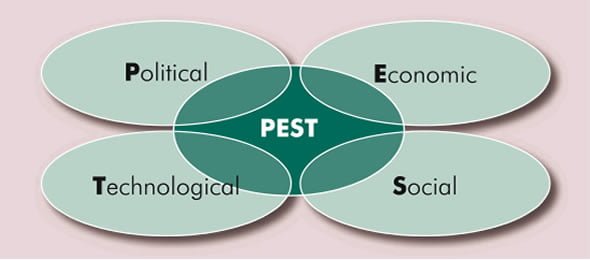The Legal Services Commission (LSC) helps people to understand the law and, if necessary, helps them to gain their rights under the law. The funding provided by government for this work is known as legal aid and amounts to £2 billion per annum. The LSC administers legal aid in England and Wales. (There is a different system in place in Scotland.)

The LSC helps people to know their rights and what steps they can take to claim their rights. People may have problems at work, at home or with organisations in positions of power. For instance, they may be treated unfairly at work and have a claim against an employer. They may have problems with a landlord, for example, one who is not carrying out essential repairs. They may be entitled to working tax credits or child tax credits and not know how to claim these benefits. They may have been arrested by the police and not know their rights.
In all cases, they may need support to be able to make a case against an opponent who may be more powerful or in many cases have more money and be better organised.
The LSC has 1,700 staff on 13 sites. It also contracts with legal services providers around the UK, including solicitors and not-for-profit organisations like law centres or Citizen Advice Bureau. These bring experience and expertise to level the legal playing field.

The LSC deals with over two million people in an average year. A quarter of these (approximately 500,000) will experience legal problems such as divorce, eviction or debt. This will increase to a third amongst those who are long-term sick or disabled and half of those who are either lone parents or unemployed. The LSC works with local authorities and advice agencies, with solicitors, its own Public Defender Service and other lawyers to provide help to anyone with these types of problems. It also helps those held in a police station or facing criminal charges, if they cannot afford their own representation.
All citizens of a country should have the right to fair and equal treatment under the law. They should have the right to a fair trial if they are accused of doing something wrong. They should have access to experts who can help them to solve problems and disputes. For example, every year the Legal Services Commission helps over 75,000 people with debt problems and over 100,000 people who have housing problems, in particular, those in disputes with landlords. This is especially important when someone is not as strong or as wealthy as the other party in the dispute.
Wealthy people have easier access to lawyers as they can pay for them and people believe lawyers are very expensive. So poorer people need support to be able to access their basic rights fairly. This is called ‘social justice’. It means making sure that no one is at a disadvantage because of their social position their place in society. This case study focuses on the work of the LSC and illustrates what factors affect its performance and how it responds to these factors.
External factors

The LSC has to work within a changing environment and respond to many factors over which it may have no control.
Many of these factors relate to government policies which impact on social, legal and economic areas of the UK. They also include the decisions of legal bodies, such as courts in the UK or European Union (EU), changes in the law and even changes in society. They are ‘external’ factors because they are problems arising from groups or forces outside of the LSC”s control.
PEST analysis

When assessing the main impact of external factors on any business or organisation, it is helpful to group these together using the acronym PEST. This stands for the four areas that represent the most common external influences. These are:
- Political factors for example, new laws and regulations or decisions made by governments
- Economic factors changes in the economy, people”s spending power, patterns of wealth
- Social factors changes and trends in society, for example, the number of people aged over 60 in society
- Technological factors changes in techniques or equipment that can lead to the development of new goods and services or new ways of doing things
Political factors
In 1997 the new Labour government led by Tony Blair introduced the idea of reducing social exclusion. Social exclusion is when a person is left out of some or all of the benefits of society. Often people are left out because they are different or because they do not quite fit into the general idea of what is ‘normal’.
Social exclusion is often linked to poverty, debt or lack of education. The groups with which the LSC spends most of its time include the unemployed, disabled, long-term sick and lone parents. The LSC exists to make sure that such people have equal access and can have fair representation when they have legal problems.

The government’s drive to tackle social exclusion has had a direct effect on the LSC. The first phase of the government’s programme put in place wide-ranging targets in areas such as criminal justice, human rights and legal aid. In the second phase it set more specific targets, some directly attached to the Commission. The Commission is striving to become more efficient and reach these targets to maximise the help it can give to those who need it.
Aims and objectives
The Commission’s main aims and objectives are to improve access for the public to quality information, advice and legal services through local networks of services. These are designed to fulfil wider government targets to uphold human rights and reform the legal aid system. This framework, where policies and processes are developed in order to meet specific targets, is called governance.
The LSC aims to provide high quality legal services, through the providers who contract with LSC. It also aims to provide high levels of customer service to people who deal with it directly. In the spirit of the government target framework, the Commission measures its internal performance by giving scores to its customer service against targets. The higher the score, the better the LSC knows it is doing.
Customer service scores are currently at 90%. It also measures its performance on human resources (HR) as part of its commitment to its staff. The HR performance score is 85%.
Economic factors

The workload of the LSC goes up and down with the performance of the economy. In an economic downturn, it is likely that there will be more cases of social exclusion. This is because there are more business failures, along with more redundancy and unemployment. This change in people’s circumstances may result in debt and eviction. It may also lead to higher levels of crime, for example, shoplifting or criminal damage to property and theft.
The funds for the LSC are allocated in two flows. Its internal costs the administrative costs of running the service are fixed over a 3-year term. This figure is at present £117million. The fund for providing legal support is fixed on an annual basis. This means that the LSC has to be careful about spending money in order to achieve maximum benefits for its clients with limited funds.
The LSC is an organisation sponsored by the UK Government’s Ministry of Justice. This means that the government sets out the overall aims for the LSC and it operates within this framework. It does not make a profit. Its job is to deliver services efficiently and within budget. This can be difficult because of economic changes.
Its success is measured by the service targets it hits, based on the strategic objectives set by the Prime Minister. The targets are set out in the LSC Performance Framework and include the number of people helped each year, how quickly they were helped and how efficiently the budget has been managed.
Social and technological factors
Society has a deep divide between those who have money, education and influence and those who have not. It is part of the government’s policy on social exclusion to try to narrow this gap.

Statistics show that legal and social problems tend to hit hardest those people who are least capable of coping with them. If you are a lone parent or unemployed, you are twice as likely to have problems with debt or a landlord as someone who is employed or married (or living with their partner in a stable relationship).
The LSC therefore provides support to any group in society that is at a disadvantage. It helps people obtain their rightful benefits (such as tax credits, school places and human rights) and to have their voices heard. The three mini case studies below show the breadth of the LSC’s work.
Case Study 1
Jennifer left her student flat at the end of her University term in June. She had paid a deposit of £400 against damage to the flat or its contents. By November, the landlord had still failed to return the deposit, saying there had been substantial damage to the flat which meant he would keep the deposit. Jennifer knew that there was some damage, but that the new tenants had caused it in September.
She was advised to seek help from the Community Legal Service (CLS). This part of the LSC helps people with civil legal problems such as family breakdown, debt and housing. Jennifer approached the helpline, the legal aid telephone service called Community Legal Advice. The CLS advised Jennifer of her rights and referred her to a legal aid solicitor. The solicitor wrote to the landlord who, faced with the evidence, returned the deposit without the courts having to take action.
Case Study 2

Marek arrived in the UK recently, fleeing from fighting in Bosnia. Although just 17 years old, he has seen many of his family killed and friends disappear. He arrived without permission but wanted to put this right by seeking asylum. In other words, he wanted to make his home here, where he is safe. The LSC helped him find a legal aid solicitor to look into his case.
People can find legal aid solicitors through a community group such as Citizens Advice Bureau or perhaps from the Yellow Pages directory. The solicitor helped prove to the courts that Marek was at risk if he returned home. Marek’s right to seek help is part of his human rights. The LSC was able to help him gain legal status and to settle in the UK.
Case study 3
Steve was on a night out in town when a fight broke out outside a nightclub. The police arrived and arrested a number of people, including Steve. He maintained that he had been unwittingly caught up in the problem and was only watching.
Steve did not have a solicitor of his own, so a Duty Solicitor paid for by the LSC as part of the Criminal Defence Service (CDS) helped him. CDS is the arm of the LSC that funds people who are under police investigation or facing criminal charges. Steve, through the work of the Duty Solicitor, was released on bail. Later, when the police reviewed CCTV tapes, they dropped all charges against him.
The pressure on the LSC to be efficient has increased as more cases, especially human rights and asylum cases, have grown in number over the past few years. The LSC continues to develop new technology to enhance efficiency. Over the past 3 years it has begun to accept electronic billing on some types of cases from providers. This has happened as part of the change process at LSC. Its new system monitors particular criteria or factors for each provider to check their efficiency. It looks at:
- quality of service
- percentage of cases won
This use of technology is improving the effectiveness of the LSC and helps improve the welfare of the clients it serves.
Conclusion
The LSC protects people’s rights. It makes sure that they get a fair trial and helps support them so that they are not excluded by society.
As a publicly-funded organisation, the LSC has to achieve its aims within a set budget. It has to provide an efficient service that gives the taxpayer value for money.
The use of technology and of setting and monitoring quality goals has meant an improved service to the UK public over the past seven years. The LSC, through its improved systems, has adapted to the external influences it has faced.
